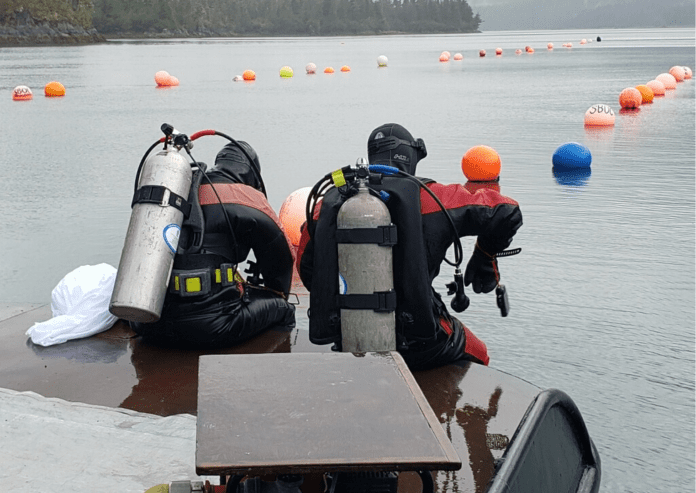
Three sea farmers in Cordova will collaborate with University of Alaska Fairbanks (UAF) researchers investigating climate change effects on culturally and commercially important marine species in the Gulf of Alaska.
UAF officials announced on April 10 that the National Science Foundation had awarded UAF $20 million for this latest climate change research. Interface of Change is the sixth five-year, multimillion dollar project directed by the Alaska Established Program to Stimulate Competitive Research, a statewide program administered at the University of Alaska Fairbanks since 2001 and funded by the NSF.
Twenty-three researchers from UAF, the University of Alaska Anchorage and the University of Alaska Southeast will partner with Cordova and seven other Gulf of Alaska communities on the project, including Seldovia, Halibut Cove, Homer, Valdez, Juneau, Haines and Klukwan.
In Cordova the collaborators will include seaweed farmers Skye Steritz and Thea Thomas and oyster farmer Seawan Gahibach.
This newest research project is to begin on July 1. Fire and Ice, another climate change project connecting Cordova with UAF, is set to end in September and a project report is to be issued this fall.
As the climate warms temperatures, increasing glacial melt flushes large amounts of freshwater, sediment and nutrients into the Gulf of Alaska, altering conditions of the nearshore coastal environment. Researchers will study the impact of these changes on coastal species and the well-being of people and economies that reply on them.
Project goals include conversations with community members, tribal entities, shellfish and kelp farmers and government agency representatives that took place over two years, with funding from a National Science Foundation planning grant.
“This funding will equip local experts with the necessary knowledge to cultivate resilient business practices, help coastal infrastructure and will further cement the University of Alaska Fairbanks as a preeminent research institution,” said Sen. Lisa Murkowski, R-Alaska.
Community input focused on red seaweeds, kelp, oysters, clams, mussels, salmon and eulachon, commonly known as hooligan.
Annual workshops to invite community feedback and discuss progress with the program are to be arranged by David Holen, one of the project’s five co-leaders, and University of Alaska Anchorage epidemiology researcher Mico Hahn. Plans are to hire local coordinators for the workshops and offer an honorarium for community participants as a respect for the time and information they provide.
Those interested in project updates will be able to browse online dashboards and databases that will make project date and results available.













